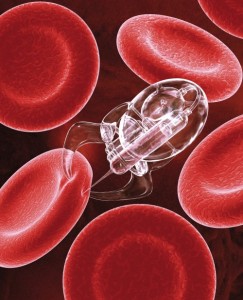A recent article in Science Mag suggests that the use of computers and the internet might actually be changing the way our memory works.
A series of psychology experiments recently carried out have shown that sometimes, when people were presented with hard to answer questions, they began to think of computers.
If participants believed that it would be easy to find answers on Google later, then they had poorer recall of the actual answer, and yet a greater memory of where the answer was stored.
 The researchers said that the internet acts as a tool which we now depend upon to to aid our memories, by remembering some data for us.
The researchers said that the internet acts as a tool which we now depend upon to to aid our memories, by remembering some data for us.
Here is the abstract for the journal entry
The advent of the Internet, with sophisticated algorithmic search engines, has made accessing information as easy as lifting a finger. No longer do we have to make costly efforts to find the things we want. We can “Google” the old classmate, find articles online, or look up the actor who was on the tip of our tongue. The results of four studies suggest that when faced with difficult questions, people are primed to think about computers and that when people expect to have future access to information, they have lower rates of recall of the information itself and enhanced recall instead for where to access it. The Internet has become a primary form of external or transactive memory, where information is stored collectively outside ourselves.
In more simplified English, what this is basically saying is that it is now much easier to access data online, mainly thanks to search engines like Google, Bing and Yahoo. If we have a question, we can find the answer in seconds.
This has lead the the human brain associating the thought of a problem with computers, as it believes that the internet will be the source of the solution. Search engines are now embeded so much in our brain, that when we think of a problem, we no longer bother trying to work out the answer for ourselves, but instead we associate the possibility of finding the solution of the problem with a search engine.
Let’s be honest, who hasn’t been bugged by something, asked someone else who also wasn’t able to help and as a result was either told “Google it” or thought “I could Google that”? I have, in fact I would say it happens on a weekly basis!
Question time
So what do you think? Are computers, the internet and search engines making us stupid, or is it just that we are now adapting as a race to more efficient ways of finding out information?

